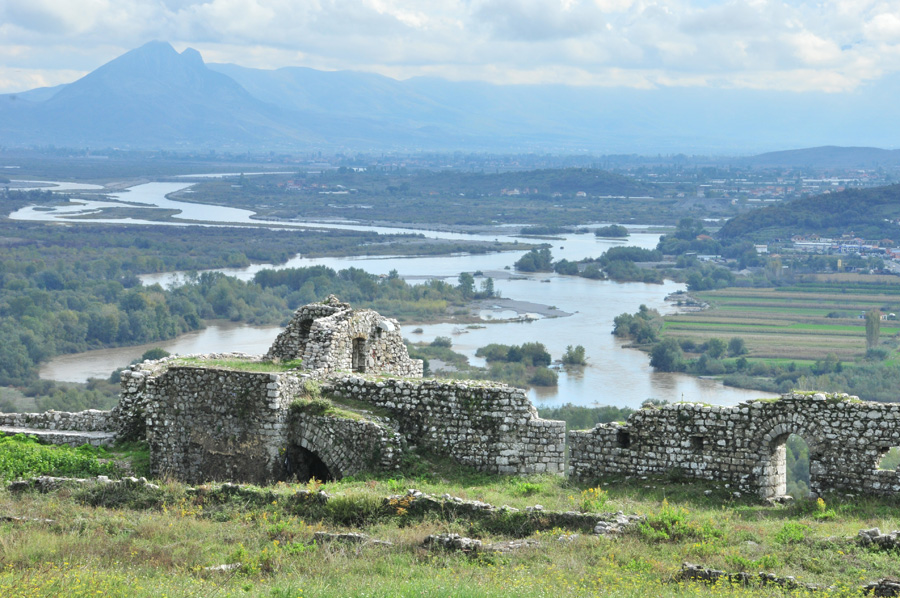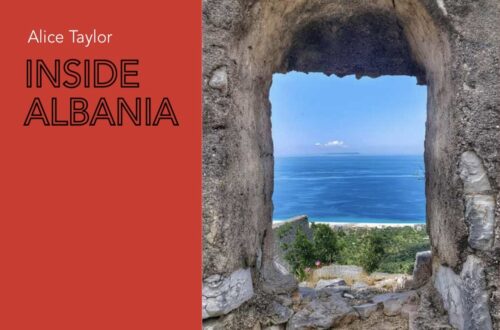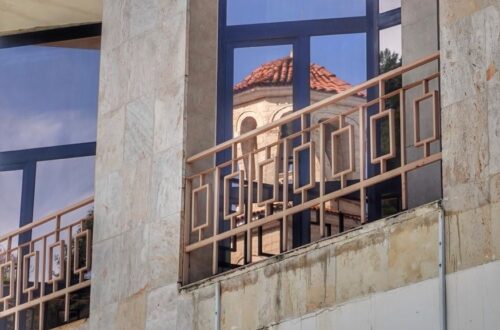When I visited Shkodra in the summer, I fell in love. Rivers, hills, mountains, beach, a vibrant city, a vast lake surrounded by picturesque coves, and of course the Castle of Rozafa overlooking it all- what is not to love?
The city of Shkodra and the surrounding area has been occupied pretty much continuously throughout history but was home to the Illyrians before the invasions of the Romans (168 BC), the Serbs (1040), the Venetians (1396) and finally the Ottomans (1479). When it returned back into the control of the Albanians, is became known for the willpower of its residents who did their best to resist the influences of Communism and were one of the first areas of the country to stand up to the regime. The area is famous for being home to a large number of artists, photographers, painters, poets, and writers
I touched in the story of the castle and in particular the legend of its namesake, Rozafa but I felt it deserved its own post to provide you with a bit more information. Like much of the surrounding area, the castle has Illyrian roots and was the stronghold of a tribe called the Labeats, the same tribe that founded the surrounding city of Scodra. Surrounded by the Buna and Drin Rivers, it sits at 130 metres above sea level providing breath-taking views of the countryside for miles around.
The fortifications that remain today are mainly Venetian and its architecture contains remnants of most who dwelled there over the centuries.
The legend of Rozafa tells the tale of the three brothers who originally built the castle. They worked tirelessly day and night laying stone and mortar, but every morning when the returned, the work of the previous day had crumbled.
Confused at what was happening, they consulted a local wiseman who told them that they needed to expel the evil that was attacking their castle. In order to do this and to ensure that the castle would last through the ages, protecting their friends, family and descendants, they needed to entomb one of their wives within the walls. Of course, this was not met with much enthusiasm from the three brothers, none of which wanted to lose their wife. Unsure of what to do and with no way to choose who would lose their beloved, the brothers made a pact not to tell their wives what the wiseman said and whichever women brought her husband his lunch first the following day would be the one to be sacrificed.
The two older brothers broke their vow and informed their wives, leaving the youngest sons wife, Rozafa to arrive, lunch in hand the next day.
When she heard the fate that had befallen her she cried for her husband and her newborn son. Despite her sadness she agreed to become a living part of the walls so that the castle could be completed, on the condition that one of her breasts be left exposed so she could feed her son. She was walled into the structure, with one breast exposed and one arm and foot left free so she could rock her child to sleep at night and soothe him during the day.
The moral of the story is to tell him to make his own packed lunch next time and never fall for anyone who would accept you being built into the wall of a castle.
Follow The Balkanista!


